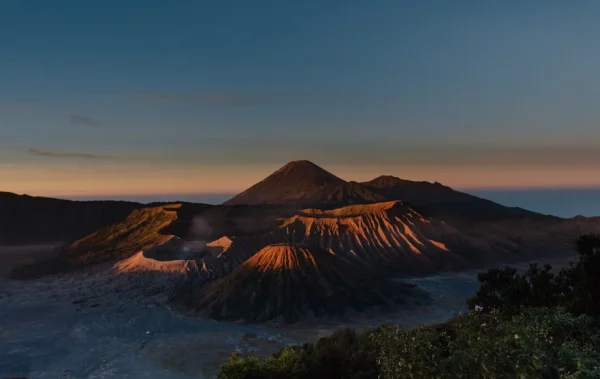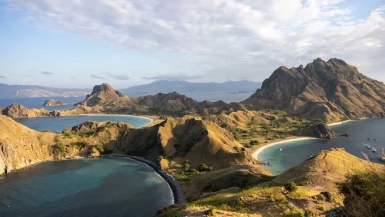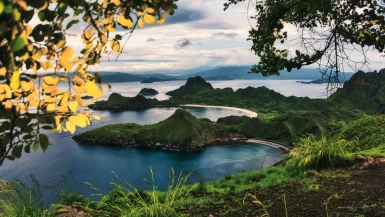Thinking about traveling to Indonesia? Great decision—you won’t regret it! But before you pack your bags, you should know things to know before traveling to Indonesia. Indonesia promises an unforgettable experience that will stay with you for a lifetime. Nestled in Southeast Asia, bordered by two vast oceans, the country boasts breathtaking natural landscapes that everyone should witness firsthand.
On top of that, Indonesia’s affordable cost of living makes it an even more appealing destination for travelers, allowing you to feel right at home. So, are you ready to embark on your journey to discover this incredible country’s vibrant culture and rich history? Scroll down!
1. Understanding Indonesia’s Vastness and Diversity
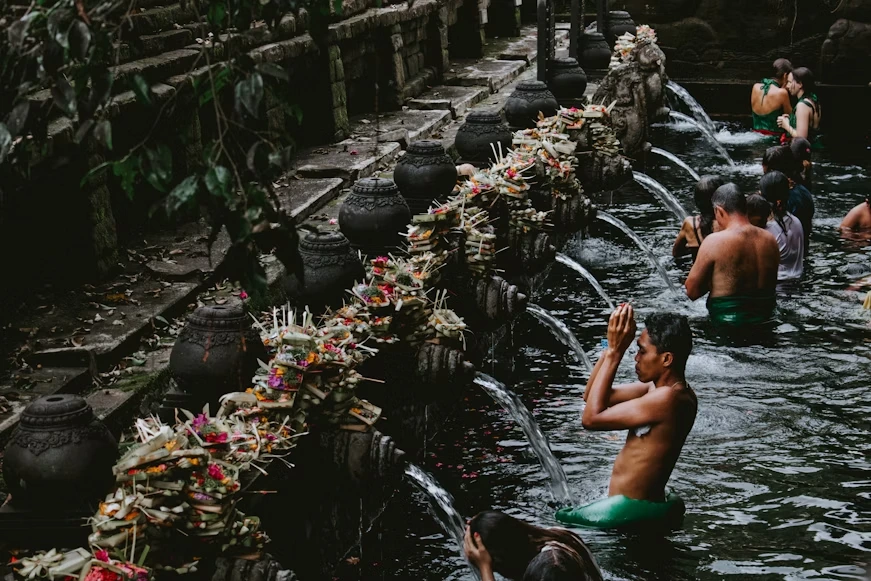
One of the things to know about Indonesia is that it is not only the largest archipelago in the world but also a land rich in cultural diversity and natural beauty. With over 17,000 islands, this Southeast Asian country offers something for every traveler. From stunning beaches to vibrant city life, diverse traditions, and languages, the scope of Indonesia’s offerings is vast.
Understanding the country’s geographical and cultural makeup is essential to planning a well-rounded trip.
Indonesia is a Huge Archipelago
Did you know Indonesia is made up of over 17,000 islands? With so many options, plan your destinations well to maximize your time. Popular islands include Bali, Java, Sumatra, and Lombok, each offering unique attractions and landscapes.
Diverse Cultures and Languages
Indonesia is a melting pot of cultures, with over 300 ethnic groups and over 700 languages spoken. Each region offers its own distinct language, culture, and traditions. You’ll notice a mix of Javanese, Balinese, Sundanese, and many others, adding depth to your travel experience.
Climate Variations
While tropical, Indonesia’s weather can vary greatly depending on the region. Coastal areas are typically warm and humid, while mountain regions like Bali or Sumatra are cooler and may require a light jacket. Some islands have microclimates, so checking the forecast for your specific destinations is always a good idea.
2. The Best Time to Visit Indonesia
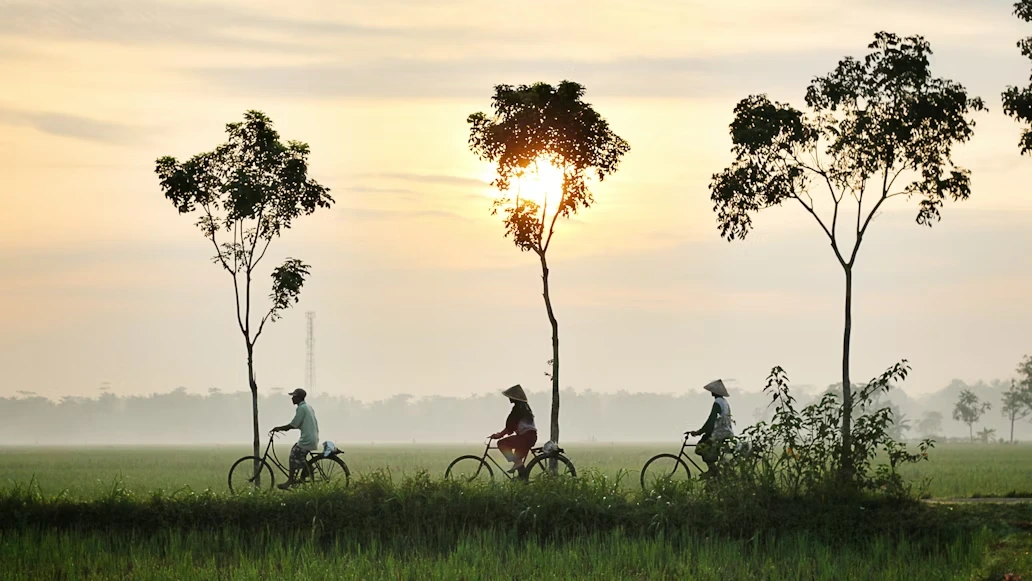
The best time to visit Indonesia depends on the activities you want to enjoy and the weather conditions of the islands you plan to explore. The country’s tropical climate means there are two distinct seasons: the dry and rainy seasons. Both offer unique experiences, from sunny beach days to cultural immersion during festivals.
Dry Season (April – October)
This season is ideal for outdoor activities like hiking, diving, and sightseeing. When you plan to dive or surf to Labuan Bajo and Komodo Island, the best time to visit East Nusa Tenggara is from April to October, when underwater visibility is at its peak.
Expect sunny skies and calm seas, perfect for exploring Indonesia’s stunning natural beauty. This is the peak travel season, so book accommodations and tours early to avoid disappointment.
Rainy Season (November – March)
While some regions experience heavy rainfall, cultural tourism and indoor activities are still enjoyable. You can enjoy fewer crowds and lush green landscapes if you don’t mind the occasional downpour. Some areas, like Bali and Java, remain accessible year-round.
Festivals and Events
Time your trip during unique festivals like Nyepi and Galungan (Balinese New Year) or the Toraja funeral ceremonies (South Sulawesi) to immerse yourself in local traditions. But if you want to explore more, experience the Pasola Festival in Sumba or the Komodo Festival are the best things to do in East Nusa Tenggara. These events offer a glimpse into Indonesia’s rich heritage and vibrant culture.
3. Visa Requirements and Entry Regulations
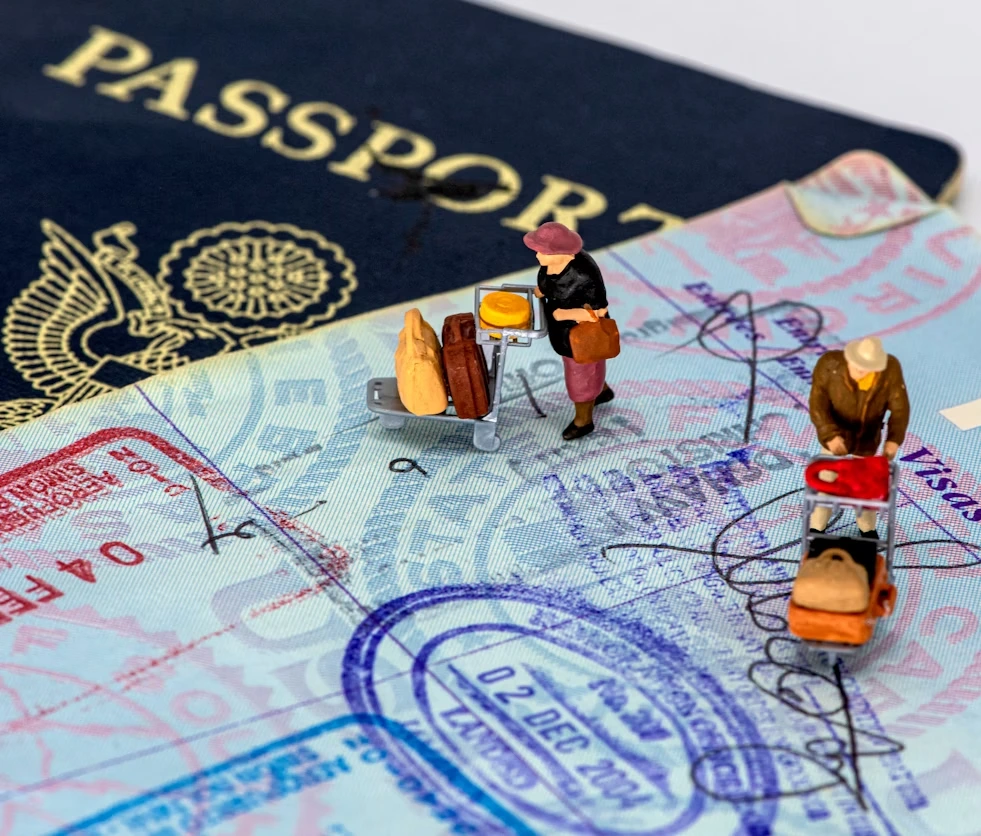
Traveling to Indonesia requires understanding the visa policies and entry regulations, which vary depending on your nationality, the duration of your stay, and the region you plan to visit. It’s important to stay updated on the necessary requirements, including health regulations, to ensure a smooth journey.
- Visa on Arrival (VoA): Many nationalities can obtain a 30-day visa on arrival at major airports and seaports. The process is straightforward, but make sure your passport is valid for at least six months.
- Tourist Visa Options: If you plan to stay longer, consider applying for an extension. Some travelers opt for a social-cultural visa, which allows stays of up to six months with regular extensions.
- Health Regulations: Check for any health screenings or vaccinations required for specific areas, especially when visiting remote islands. Staying informed about COVID-19 regulations is also essential.
4. Currency and Payments
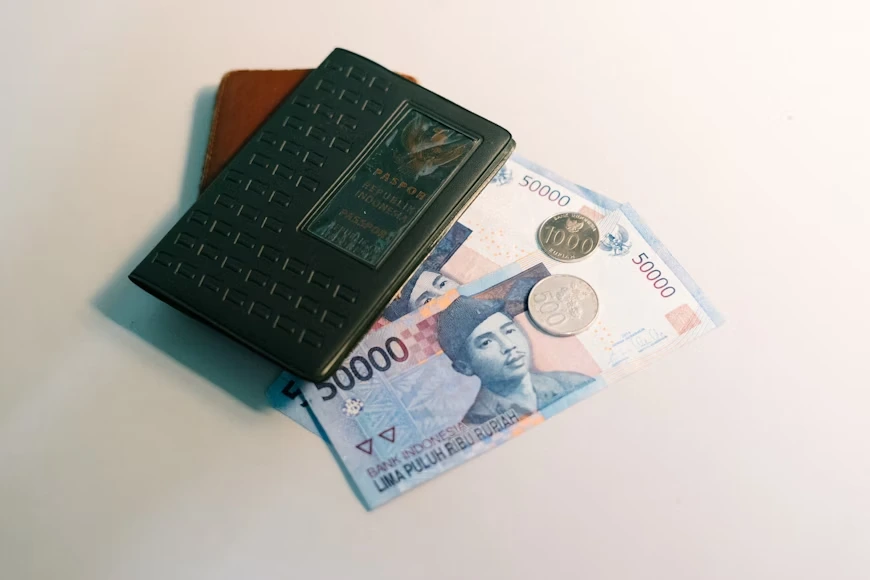
Understanding the currency system and how to manage payments in Indonesia is vital for a hassle-free trip. While the Rupiah (IDR) is the official currency, cash transactions are more common in many places, particularly outside major cities. Familiarity with payment options and tipping culture will help make your trip more convenient.
- Currency: Indonesia’s official currency is the Rupiah (IDR). Cash is essential, especially in rural or remote areas. Familiarize yourself with the denominations to avoid confusion.
- ATMs and Currency Exchange: ATMs that accept international cards are common in cities, but cash is king in smaller towns. Carry small denominations for easier transactions.
- Tipping Culture: Tipping isn’t mandatory but is appreciated for good service in restaurants, hotels, and taxis. A small tip can go a long way in showing gratitude.
5. Getting Around Indonesia
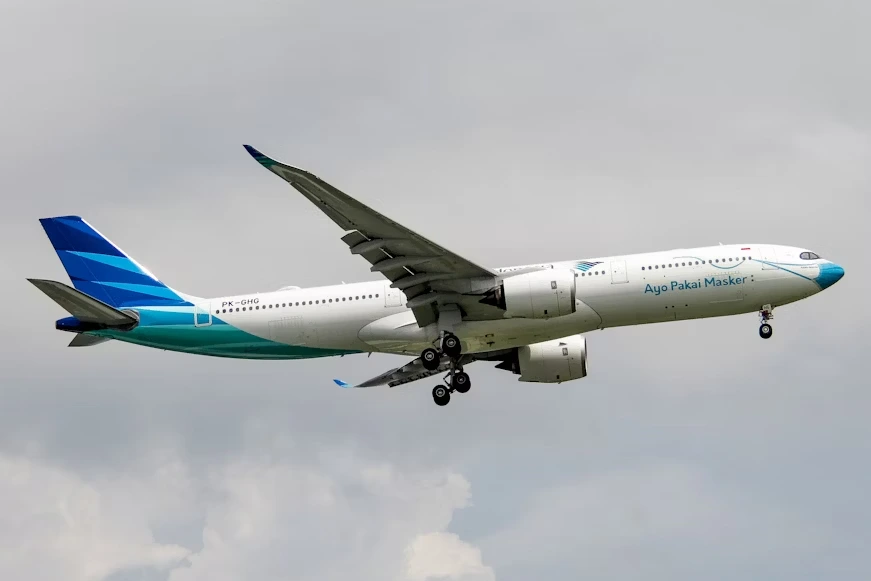
Indonesia’s vast geography makes transportation planning essential for a smooth trip. Understanding your options can save time and enhance your travel experience with thousands of islands to explore and varied terrains.
- Public Transportation: Public transport options like TransJakarta buses and commuter trains (KRL) are affordable and efficient in cities like Jakarta. However, they can get crowded during peak hours.
- Flights: Domestic flights are the quickest way to travel between islands. Airlines like Garuda Indonesia, Lion Air, and Citilink operate frequent routes.
- Local Transport Options: Taxis, ojek (motorcycle taxis), and ride-hailing apps like Gojek and Grab are convenient for short trips. In smaller towns, becak (pedicabs) are a charming way to get around.
6. Understanding Local Etiquette and Customs
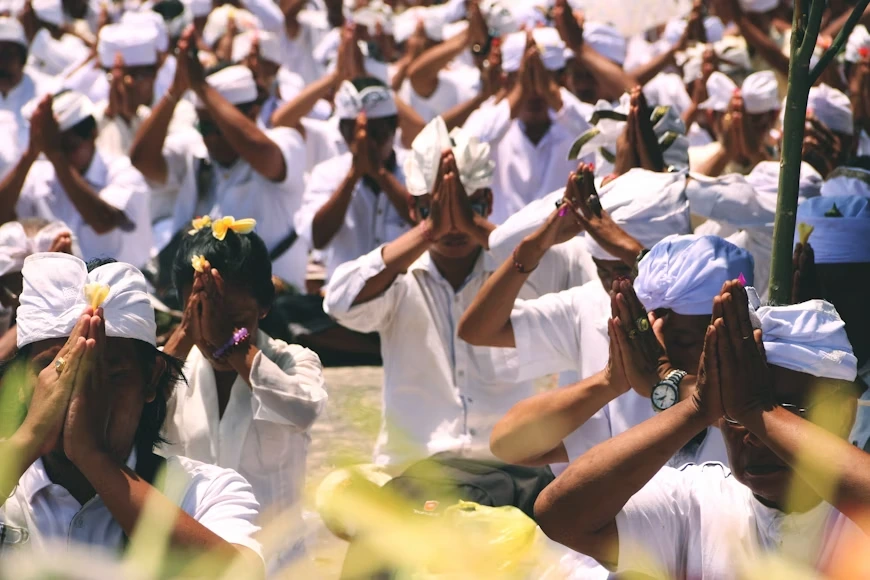
Respecting local customs and traditions fosters goodwill and enhances your travel experience by deepening your understanding of Indonesian culture. Observing and adapting to these customs will make your interactions with locals more meaningful and rewarding.
- Respect for Religion: Indonesia is predominantly Muslim, so be mindful of customs, such as dress codes and prayer times. You’ll find different customs but equally strong religious traditions in Hindu-majority Bali.
- Dress Modestly: In conservative areas, covering your shoulders and knees shows respect. Beachwear is acceptable for coastal areas but inappropriate in villages or religious sites.
- Greetings and Communication: Basic greetings like “Selamat pagi” (Good morning) or “Apa kabar?” (How are you?) goes a long way in connecting with locals. A smile is universally appreciated.
7. Popular Indonesian Dishes to Try
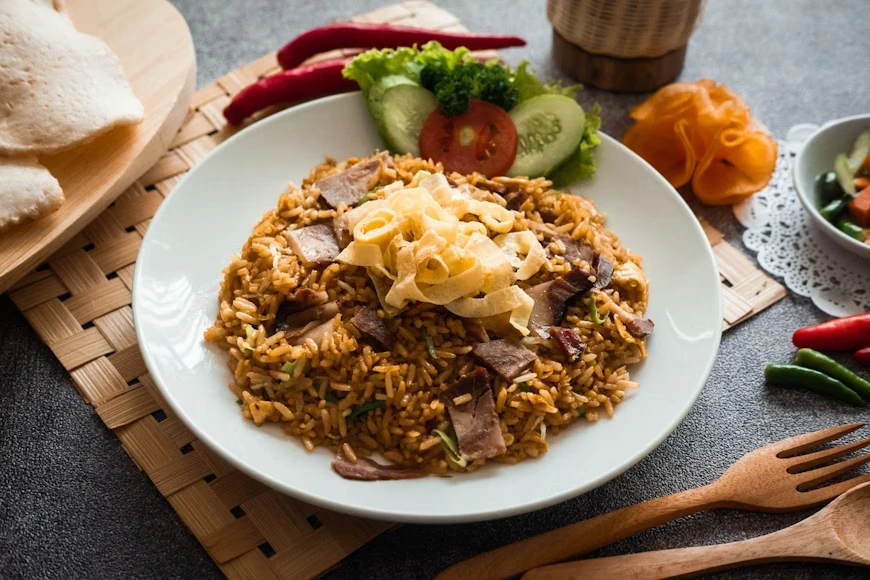
Exploring local cuisine is one of the best ways to experience Indonesia’s rich culture and diversity. Each dish tells a story, reflecting the unique traditions and flavors of the region it hails from.
Whether dining at a street-side warung or an upscale restaurant, the most favorite Indonesian food and drink is a highlight you don’t want to miss.
- Nasi Goreng: Indonesia’s iconic fried rice dish, often served with fried eggs and shrimp crackers.
- Satay: Skewered meat grilled to perfection and paired with peanut sauce. Variants like chicken, beef, and lamb are widely available.
- Rendang: A flavorful beef stew cooked with coconut milk and spices, hailing from West Sumatra.
- Iced Sweet Tea: A refreshing, sweet drink that’s perfect for the tropical heat. Try it with a squeeze of lime for added zest.
- Bakso: Savory meatball soup, often sold by street vendors, is a popular comfort food among locals.
8. Staying Connected: Internet and Communication
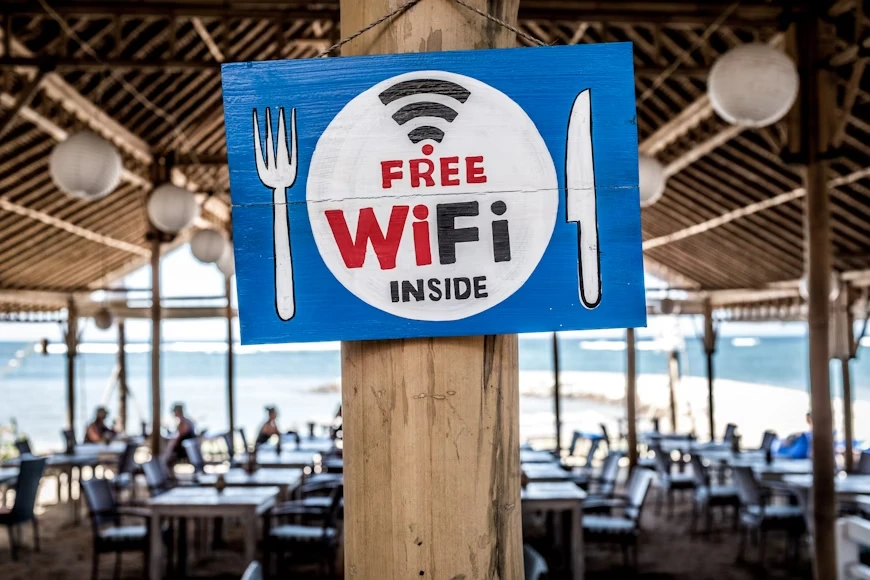
Staying connected is an important aspect of traveling, whether for sharing your adventures, navigating new destinations, or staying in touch with loved ones. Thankfully, Indonesia offers multiple options to ensure you remain online and accessible throughout your trip.
- SIM Cards and Internet Access: Local SIM cards are affordable and offer reliable 4G coverage in most cities and tourist areas. Providers like Telkomsel and XL are popular choices.
- Wi-Fi Availability: Hotels, cafes, and restaurants in urban areas typically offer free Wi-Fi. However, connectivity in remote areas may be limited, so plan accordingly.
9. Health and Safety Tips for Travelers

Ensuring your health and safety while traveling in Indonesia is key to having a stress-free and enjoyable trip. By adequately preparing and being aware of potential risks, you can focus on exploring and experiencing all the wonders this country offers.
- Vaccinations: Hepatitis A, B, and Tetanus vaccinations are recommended. Check with your healthcare provider for additional advice.
- Stay Hydrated: The hot and humid weather makes staying hydrated crucial. Avoid untreated tap water and opt for bottled or filtered water.
- Travel Insurance: Travel insurance covers health, trip cancellations, and lost belongings. It’s better to be safe than sorry.
10. Basic Indonesian Phrases to Know
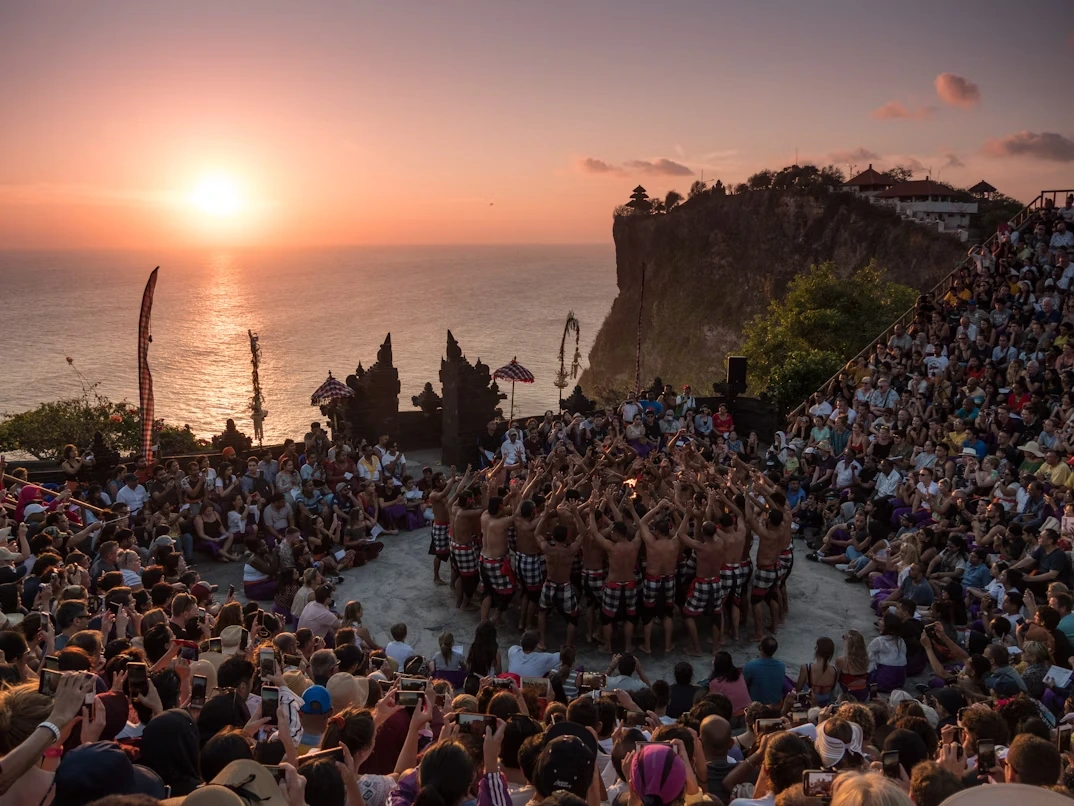
Knowing a few basic phrases can significantly enhance your interactions with locals and help you easily navigate unfamiliar situations. Indonesians are generally warm and welcoming, and trying to communicate in their language often earns smiles and appreciation.
Here are some phrases to learn:
- “Selamat pagi” – Good morning
- “Terima kasih” – Thank you
- “Berapa harganya?” – How much is this?
- “Di mana kamar kecil?” – Where is the restroom?
- “Tolong” – Please
- “Apa kabar?” – How are you?
- “Permisi” – Excuse me
Indonesia offers endless opportunities for adventure, cultural exploration, and relaxation. From Jakarta’s bustling streets to the Gili Islands’ tranquil beaches, there’s always something new to discover. To ensure a smooth and enjoyable trip, remember these things to know before traveling to Indonesia.
So, now you know what to consider when traveling to Indonesia, are you ready to explore more? Visit Letstravelntt for destination guides, travel tips, cultural insights, and personalized travel services to help you experience the charm of East Nusa Tenggara like never before.
